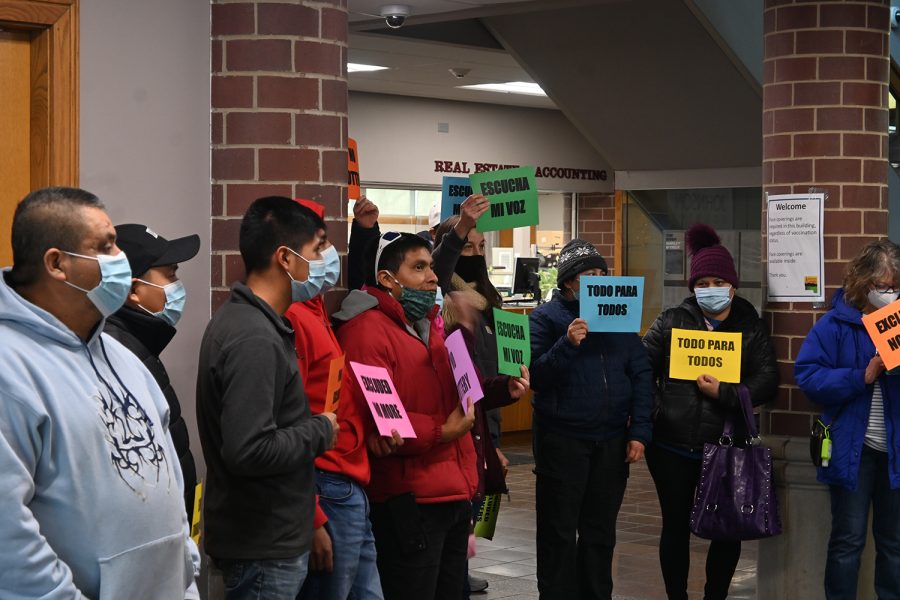Standing in front of a large map of the Middle East, UI medical student Harb Harb presented the background and current situation of the Palestinian-Israeli conflict to a global-studies class of roughly 20 seventh-graders at North Central Junior High.
Harb is one of many UI volunteers — including international students and returned study-abroad students — who share their international experiences and perspectives with K-12 Iowan students through the UI’s International Classroom Journey.
Sponsored by International Programs, the program affects the learning of more than 2,500 K-12 students annually.
A Palestinian-American who lived in Ramallah, on the West Bank, from 1996 to 2001, Harb shared with the students a brief history of the Palestinian-Israeli conflict, as well as his own experience living in Ramallah under the tension.
Harb returned to Ramallah last summer to conduct research for his master’s program in public health, which he has presented at various events. But it was his first time discussing the Middle East conflict with junior-high students.
“I believe exposing younger children to various perspectives of global issues will help alleviate any biases, prejudice, and discrimination in the future,” the 24-year-old said.
Harb had his special trick to make the complex issues easier to understand for the students.
“A powerful technique that I use when speaking is relating the conflict to the audience as if they were there themselves,” he said.
Harb used that technique when discussing checkpoints in the West Bank preventing transportation for Palestinian refugees, paralleling it with students being unable to travel from Iowa City to Coralville.
Twelve-year-old Michael Clement said he learned a lot from Harb’s presentation.
“All I really knew was there was a conflict between the Palestinians and the Israelis and that Palestinians weren’t treated fairly because they were told what to do and couldn’t live freely,” he said. “I like Harb’s presentation because it gives me an inside scoop on what’s going on in Palestine and Israel.”
But what Michael knew is already more than many of his fellow students do. Teacher Alisa Meggitt said it is alarming how little her students know about the Middle East.
“Just today, I had to convince an entire class that Osama bin Laden is not from Iraq and was not hanged,” she said. “They have a very hard time distinguishing between Osama bin Laden and Saddam Hussein, even with many repetitions, reviews, and drills.”
Buffy Quintero, an outreach coordinator for the International Programs, said the International Classroom Journey is beneficial to both the K-12 students and the UI presenters.
“K-12 students benefit from having someone put a personal face on the complex world that surrounds them,” Quintero said. “It also gives our UI students a chance to get off campus and to connect with the local community.”
Two days before Harb’s presentation, Asila Mohammed Al Ma’Awali, a visiting Fulbright scholar from Oman who teaches an advanced Arabic class at the UI, spoke about Islam and Oman to the same class.
“I am in the U.S. for only one year,” she said. “So it is good to have a chance to visit schools and speak about my religion, country, and culture.”
“Authenticity” is what the students benefit most from the presentations, Meggitt said.
“I can’t give voice to anyone from the Middle East as well as someone who has actually lived there,” she said. “They provide a face to go with a nation, which is much more meaningful and memorable than a textbook or a Mrs. Meggitt PowerPoint.”






